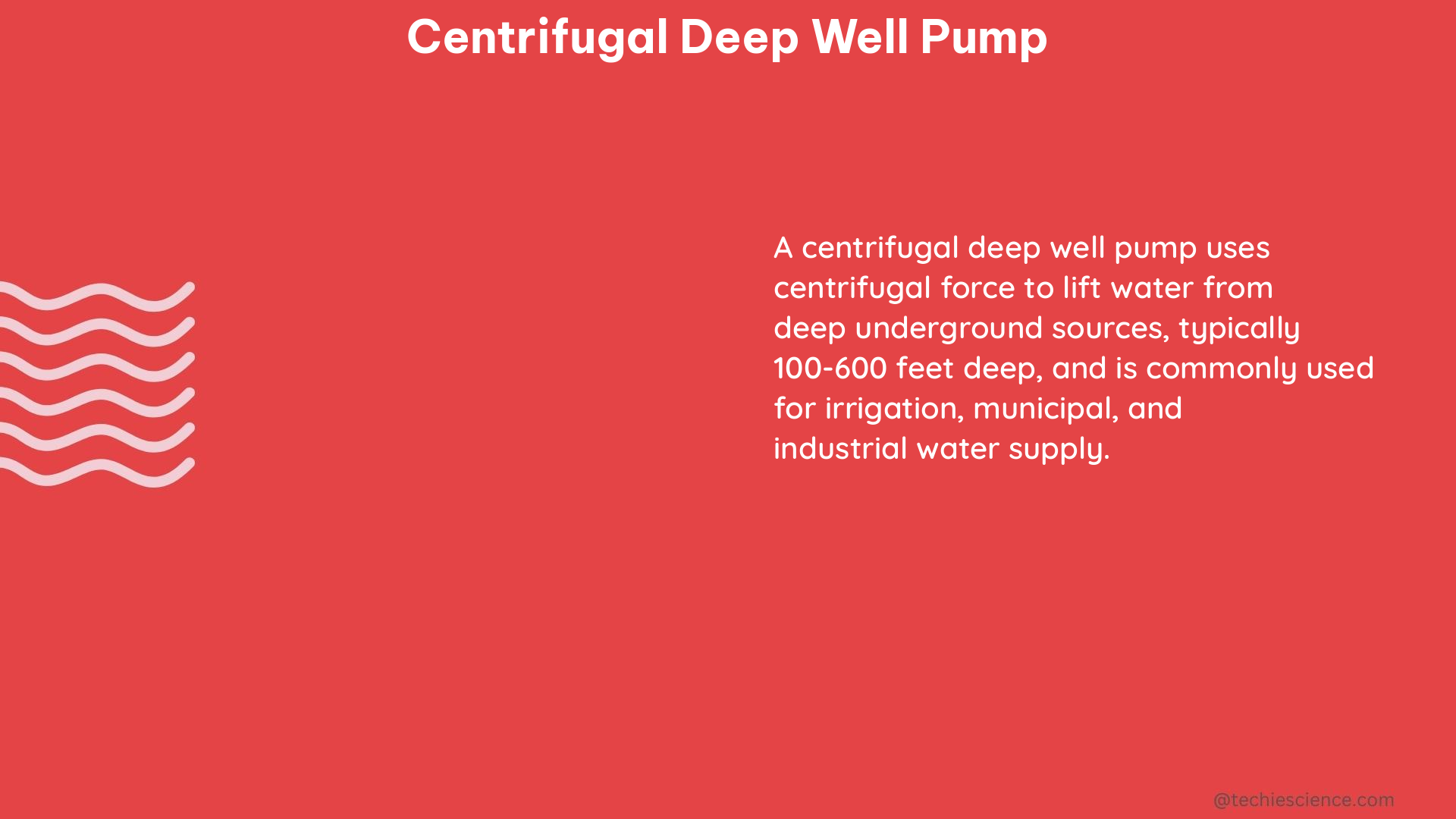Centrifugal deep well pumps are a specialized type of pump designed to lift water from great depths, often ranging from hundreds to thousands of feet. These pumps are widely used in agricultural, industrial, and municipal settings for irrigation, water supply, and other applications that require a high flow rate.
Understanding Centrifugal Deep Well Pump Characteristics
One of the key characteristics of centrifugal deep well pumps is their flow rate, which is the volume of water the pump can move in a given period of time. For example, a submersible multi-stage centrifugal deep well pump with a capacity of 260 gallons per minute (GPM) can be installed in a well 27 feet below the static water level and run at 3,000 revolutions per minute (RPM). This pump is capable of moving a large volume of water from the well to the surface, making it suitable for applications that require a high flow rate.
Another important factor to consider when selecting a centrifugal deep well pump is its head, which is the height to which the pump can lift water. The head of a pump is typically measured in feet, and it is a crucial consideration when determining the suitability of a particular pump for a given application. For example, if you are considering a TF-C100 Centrifugal Pump with a 3.5-inch impeller diameter that operates at 1 horsepower, and you need the pump to move fluid up 40 feet, you can use pump curves to find the pump’s flow rate given these conditions. In this case, the pump’s flow rate would be 40 gallons per minute.
Affinity Laws and Pump Performance

The affinity laws are a set of formulas that describe the relationship between the variables of pump flow rate, head, speed, and power. These laws can be used to calculate how changes in these variables will affect the pump’s performance. For instance, if you want to determine how the flow rate of a centrifugal pump will change when the impeller diameter is constant and the shaft speed is increased, you can use the following formula:
Q₁/Q₂ = (N₁/N₂)
Where:
– Q is the flow rate
– N is the shaft speed
– 1 is the current or before value
– 2 is the new or after value
Other Factors Affecting Centrifugal Deep Well Pump Performance
In addition to flow rate and head, there are other factors that can influence a centrifugal deep well pump’s performance, including:
- Fluid viscosity
- Fluid temperature
- Suction and discharge pipe sizes
These factors should be taken into account when selecting and using a pump to ensure that it is operating at its maximum efficiency.
Calculating Pump Flow Rate Manually
If you don’t have access to pump curves or if the affinity laws aren’t applicable to your situation, it is still possible to calculate the pump flow rate manually. This method requires collecting the fluid in a measuring container whose volume is known and then dividing the volume of the fluid by the time it took to collect it.
Selecting the Right Centrifugal Deep Well Pump
When selecting a centrifugal deep well pump, it is important to consider its flow rate, head, and other factors that can influence its performance. By using pump curves, the affinity laws, or manual calculations, you can determine the pump’s flow rate and other performance characteristics, which can help you select the right pump for your application.
References:
– Solution 119 A submersible multi stage centrifugal deep well pump 260 gpm capacity is installed in a well 27 ft below the static water level and running at 3000 rpm
– How to Calculate Pump Flow Rate: A Step-by-Step Guide
– Irrigation Water Pumps | NDSU Agriculture

The lambdageeks.com Core SME Team is a group of experienced subject matter experts from diverse scientific and technical fields including Physics, Chemistry, Technology,Electronics & Electrical Engineering, Automotive, Mechanical Engineering. Our team collaborates to create high-quality, well-researched articles on a wide range of science and technology topics for the lambdageeks.com website.
All Our Senior SME are having more than 7 Years of experience in the respective fields . They are either Working Industry Professionals or assocaited With different Universities. Refer Our Authors Page to get to know About our Core SMEs.